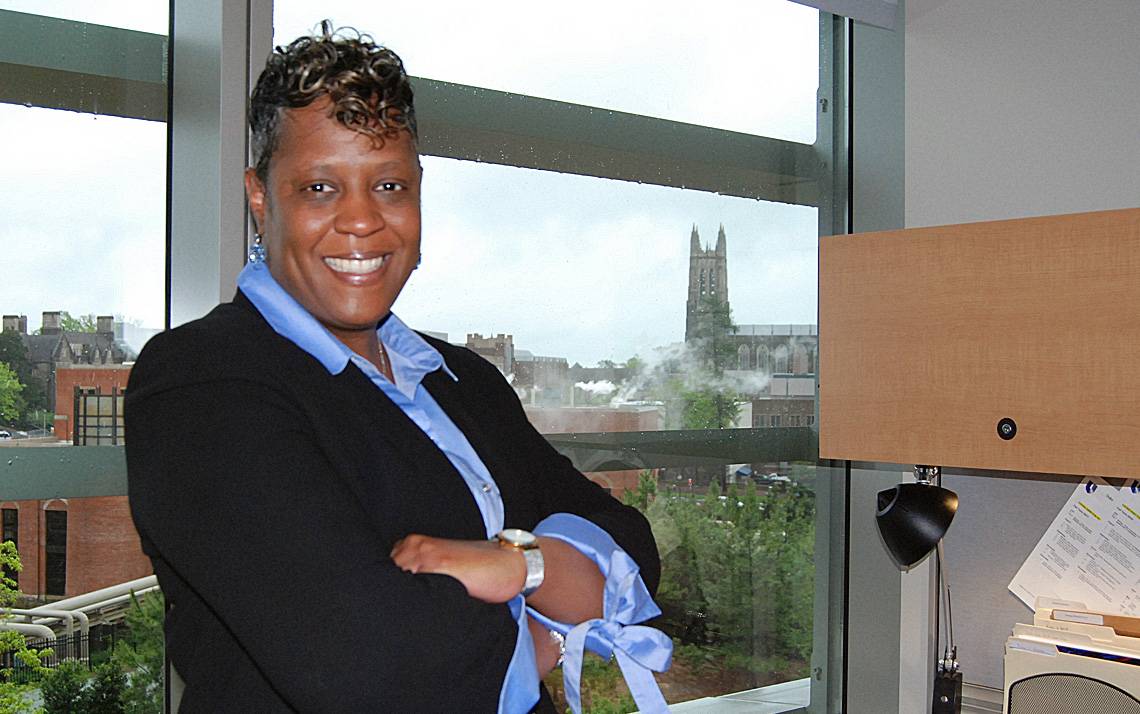How to Cultivate the Habits of a Problem Solver
Drive, confidence and an open mind help Duke employees overcome obstacles

As the administrative coordinator for Duke’s Medical Scientist Training Program, where students work toward both a Ph.D. and M.D., Tiwonda Johnson-Blount gets tricky logistical questions.
She might get asked about how parking works as students jump between medical school and graduate school. She’ll offer help to students who have questions regarding their funding or steps to take after defending a Ph.D thesis.
Whether a problem is big or small, solving it is in her nature. That wiring helped Johnson-Blount win a Presidential Award for her work in 2014.
“Every problem, to me, is an opportunity to learn,” Johnson-Blount said. “That’s something I’ve always done. I feel like I have to know the answer … I have to figure this out or it will bug me.”Ma
ny workplaces have people who, like Johnson-Blount, are adept at sorting out issues. With the help of some Duke experts, here are some habits that make those employees effective problem solvers.
Amass knowledge
Some jobs – think IT technicians or doctors – require constant problem solving. The ability to diagnose and remedy an issue effectively are central to what they do.
James Emery, associate professor of the practice at Duke’s Fuqua School of Business, specializes in leadership and team dynamics. He said that a common thread among people who excel in roles is a desire to keep learning.
“Generally-speaking, people who have more familiarity and more domain-specific knowledge are going to be more effective problem solvers,” Emery said. “The more times they’ve seen this type of problem, the faster they can figure out the set of steps they need to follow to solve it.”
Don’t give up
The more complex a problem, the longer it takes to solve it. The longer it takes to solve, the more likely someone is to quit trying.
Johnson-Blount said that, when presented with a problem, she feels compelled to figure it out, so she won’t quit until she does.
“The best problem solvers tend to be those that are motivated to really persist and apply more mental effort to try and solve it,” Emery said.
Plan for everything
Abby Farrell, a senior practice partner with Duke Learning & Organization Development, teaches classes on project management, a discipline that requires a strong ability to overcome problems that may arise.
She said that a key factor to working through problems is understanding that they pop up and making a plan in advance.
“People usually tend to think about things in the perfect world,” Farrell said. “Sometimes I have to remind them that it is OK to be adaptable and to be flexible. The end goal is to stay on track. Not everything is going to be perfect. It’s OK to think about the worst-case scenario. Should you get there, it’s important to already have a contingency plan in place.”
Keep an open mind
When she won a Presidential Award, Johnson-Blount was working as a staff assistant for the director of graduate studies in the Duke Literature Program. She streamlined the complicated task of gathering course information from faculty members and crafted a departmental course schedule. While coming up with her method – which involved building an online form – she incorporated features suggested by faculty.
The form was her idea, but she valued input.
“You can’t have a narrow way of thinking,” Farrell said. “It’s important to be open to different perspectives.”
Believe in yourself
In working with teams of Fuqua students, Emery said he can often sense the ones that will be especially successful solving whatever problems are thrown their way. The successful teams are often the ones that possess an unshakable confidence that they will solve the problem.
Described as self-efficacy, this kind of confidence is a simple trait, but Emery said it’s an important one.
“You’ve got to have the belief that I as an individual or us as a team can collectively solve the problem,” Emery said. “It’s really hard for a team to maintain its effectiveness in solving the strategic problems that it needs to when it begins to doubt itself.”